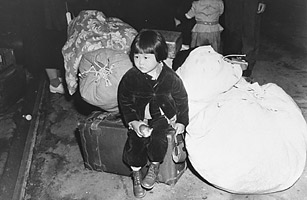
In 1942, California resident Fred Korematsu was sentenced to jail after refusing to participate in the forced relocation of more than 100,000 Japanese Americans to internment camps as dictated by an executive order from President Franklin D. Roosevelt. Korematsu, aided by the American Civil Liberties Union (ACLU), unsuccessfully sued the government for violating his constitutional rights. And after losing a petition in the U.S. Court of Appeals, the ACLU took Korematsu's case to the Supreme Court, where Justices sided with the government in a 6-to-3 vote. In his opinion, Justice Hugo Black argued that the government's decision did not violate their constitutional authority, nor the 14th Amendment. Nearly four decades later, California professor Peter Irons uncovered documents revealing the government hid information that showed that Japanese Americans were not actually security threats, prompting a San Francisco federal judge to overturn Korematsu's conviction. The Supreme Court's controversial decision, however, remains.